MercoPress. South Atlantic News Agency
Tag: Populism
-
Saturday, June 17th 2023 - 09:54 UTC
Is it really the end of populism

By Gwynne Dyer – We’re going to miss them the populist ‘big beasts’ now they’re gone. Who will now tell us that “Voting Conservative will cause your wife to have bigger breasts and increase your chances of owning a BMW M3”? (Boris Johnson)
-
Saturday, July 3rd 2021 - 10:31 UTC
Colombian President says the rule of law has prevailed

Colombian President Iván Duque said that during the past months of political and social unrest, “the rule of law, institutionality, and democracy has prevailed,” despite the numerous cases of police brutality and human rights violations that have been reported.
-
Monday, May 10th 2021 - 09:50 UTC
US investors withdrawing from Latin America's three largest economies as populist rulers spark concern
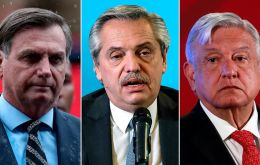
According to a recent report from the Department of the Treasury, investors from the United States are rapidly fleeing the once most promising and three largest countries of Latin America (Brazil, Mexico and Argentina).
-
Tuesday, October 20th 2020 - 09:54 UTC
Populism in Brazil: how liberalisation and austerity led to the rise of Lula and Bolsonaro
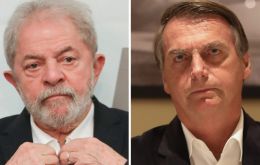
By Patricia Justino and Bruno Martorano (*) – While the rise of populist politicians in Europe and the US gets a lot of attention from the media and researchers alike, the drivers of the populism taking hold in emerging and developing economies still receives relatively little scrutiny.
-
Tuesday, October 13th 2020 - 09:01 UTC
Bolsonaro more popular than ever despite Brazil's questionable Covid-19 record
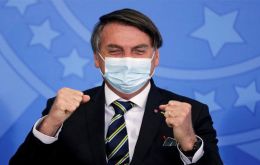
President Jair Bolsonaro has never been more popular in Brazil, despite his country's woeful handling of the COVID-19 pandemic. Bolsonaro, who tested positive for the virus on July 7, has dismissed it as a “little flu”. Brazil passed five million Covid-19 cases on Tuesday and recorded its 150.000th death on Saturday.
-
Thursday, November 14th 2019 - 18:30 UTC
As populism advances, beware of the Polish secret

By Gwynne Dyer – There is a tension at the heart of populist political parties that may ultimately lead most of them to electoral defeat. They depend heavily on the votes of the old, the poor and the poorly educated — “I love the poorly educated,” as Donald Trump once put it — but they are also right-wing parties that do not like what they call “socialism.” (Other people call it the welfare state.)
-
Monday, August 12th 2019 - 20:18 UTC
A Monday of financial turmoil in Argentina as markets digested Sunday's primary results

Argentina's currency collapsed 30.3% to a record 65 Pesos to the US dollar while government bonds sold off steeply on Monday after the country’s market-friendly, President Mauricio Macri, performed worse than expected in Sunday primary elections.
-
Saturday, August 10th 2019 - 09:59 UTC
On Sunday 33.8 million Argentines will decide if they still believe in populism
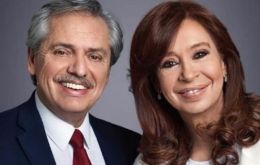
Argentines are facing what is probably the tightest presidential race since the return of the country’s democracy in 1983 with conservative President Mauricio Macri facing an opposition ticket including ex-President Cristina Fernández, and the primary elections Sunday are expected to provide a hint of who might win October’s vote.
-
Monday, June 3rd 2019 - 09:13 UTC
Pope in Romania asked forgiveness for the mistreatment of the Roma people
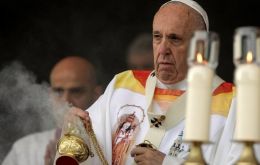
Pope Francis on Sunday asked forgiveness in the name of the Catholic Church for the mistreatment of the Roma people, a move likely to increase tensions with Italy's anti-immigrant Interior Minister Matteo Salvini.
-
Friday, May 31st 2019 - 09:55 UTC
Trumpism did not sweep across Europe as it did in the US
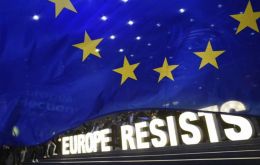
The best way to describe what just happened in the European Union elections is to say that the choices are getting clearer ― and a lot of people are realizing which side they are on. The elections to the EU Parliament held last week in 28 European countries ― including the United Kingdom, since three years after the Brexit referendum, it still hasn't managed to leave ― was the second-biggest democratic exercise in the world.
